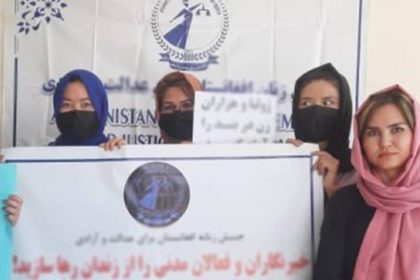RASC News Agency: In yet another demonstration of authoritarian cruelty masked as religious morality, the Taliban administration in Daykundi province has announced a 10-day campaign to exterminate stray dogs, describing the animals as “feral, diseased, and dangerous.” The provincial governor’s office claims that the operation will be conducted “in line with Islamic standards,” although no clear religious or legal definitions have been provided to justify the mass culling. The campaign will be executed by a Taliban-formed committee comprising representatives from the municipality, the Directorate of Environment, the police command, the departments of agriculture and livestock, and public health. These departments have been instructed to identify and destroy stray dogs across urban and rural districts, allegedly in accordance with “principles of Sharia” a vague and often arbitrarily interpreted term under Taliban rule.
Local authorities have also been directed to intensify surveillance and initiate killings of homeless or sick animals, raising grave concerns about the regime’s disregard for humane practices and international norms on animal welfare. With no mention of veterinary assessments, public health consultations, or ethical protocols, the Taliban’s directive appears to be yet another manifestation of their brutal and reactionary governance style, cloaked in religious justification. Animal rights advocates and environmental experts have condemned the campaign as both inhumane and scientifically flawed. “Effective public health policy in relation to stray animals does not begin with bullets and poison; it begins with compassion, shelter, and community education,” said one international animal welfare specialist. “The Taliban’s violent approach not only inflicts unnecessary suffering on animals but also fails to address the root causes of the stray population, such as poverty, displacement, and lack of veterinary infrastructure.”
In most functioning societies, the treatment of animals reflects the broader values of governance. Humane societies invest in animal shelters, neutering programs, public awareness, and adoption initiatives. Under the Taliban, however, such progressive models are dismissed in favor of state-sponsored brutality whether directed at human or non-human life. The international community has long criticized the Taliban for systemic human rights violations, particularly against women, minorities, and journalists. This latest campaign against defenseless animals further exemplifies a regime rooted in domination, cruelty, and the rejection of global humanitarian standards. It reflects not a concern for public health, but rather a culture of violence embedded within the Taliban’s rule where even stray animals are treated as enemies to be eradicated.
Environmental and human rights organizations are now calling for urgent international scrutiny. The Taliban’s pattern of silencing dissent, suppressing freedom, and now brutalizing animals demands a robust global response. Failing to act emboldens a regime that not only criminalizes humanity but dehumanizes all forms of life in its quest for control. As Afghanistan slips deeper into isolation and repression, even its stray dogs have become targets of a regime that knows no compassion an ominous symbol of a nation suffering under the weight of Taliban extremism.






